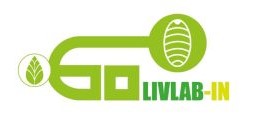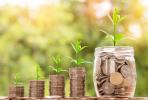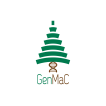
LIVLAB-IN Operational Group: Validation of the methodology in a real environment for the use of plant waste and residue by-products (sdrs) through insecticulture to increase the productivity and sustainability of agricultural farms and agro-industries
- Type Operational group
- Status In progress
- Execution 2024 -2027
- Assigned Budget 569.416,00 €
- Scope Supraautonómico
- Autonomous community Castilla - La Mancha; Cataluña; Murcia, Región de
- Main source of financing CAP 2023-2027
- Project website GO LIVLAB-IN
LIVLAB-IN aims for real, high-intensity valorization of SDRs from agricultural activity and major agro-industries. We will achieve this high valorization through insect farming. LIVLAB-IN will promote a sustainable and competitive agricultural and livestock sector that "achieves more with less."
The technical feasibility of using insect farming to harvest and valorize RDS will be accredited, with a minimum gross profitability of €770/ha for in-farm use (circular economy) of RDS through utilization in modular breeding units applicable to crop RDS. Production capacity will be quantified by byproduct and insect species. The technical requirements for quantifying this capacity will be determined, ensuring an average production capacity with a minimum utilization rate of 1-4 (obtaining 1 kg of insect for every 4 kg of RDS).
The goal will be to establish three demonstration sites in at least three autonomous communities where SDRs included in LIVLAB-IN are produced. The study will focus on the consumption, conversion, and processing of cross-combinations of SDRs and insects to identify seven profitable applications for each insect. The goal will be to achieve savings of at least 85% of the average water consumption per kg through the reuse of water contained in SDRs, and at least 70% of the average energy consumption per kg through the energy contained in SDRs, both in at least three conventional sources of animal protein production and two of plant origin.
The project seeks to validate the "High Valorization" indicated in production and price ratios; and to determine the theoretical production capacity based on the SDRs used. The project seeks to validate the technical and economic activity of insect farming, leveraging SDRs through real-life experience, and establish practical demonstration sites for professionals. Three to four demonstration sites for insect breeding with SDRs in rural settings.
More than 90% of the water will be reused in the SDRs, and electricity consumption will be reduced by more than 50% compared to conventional protein production. The goal is to increase the value of at least €100-150/ton. The goal is to obtain partial ratios for the total annual reductions in CO2 + CH4 + N2O emissions, which is 17,098.67 tons.
The reduction of NH3 emissions by 10,833 tons per year will be achieved, and the low environmental impact of insect farming will be quantitatively demonstrated. The bioeconomic impact, job creation, and sustainability associated with the project's measures will be quantitatively demonstrated, and training activities will be carried out for end users. The results will be disseminated.
To validate in a real-world setting the valorization of agricultural and agroindustrial byproducts, waste, and residues through insect farming, designing an effective and sustainable methodology. The aim will be to demonstrate the technical and economic viability of insect farming as a means of utilizing and maximizing the valorization of RDS. Experiments will be carried out in production plants for the breeding of insects from RDS, where the utilization will result in savings in resource consumption.
- 1. Technical-economic viability.
- 2. Demonstrative experiences in at least 3 SDR production and utilization PLANTS.
- 3. Demonstration of reduction in resource consumption.
- 4. Characterization and application of by-products and residues from insect farming activity with SDRs.
- 5. Demonstration of reduction of GHG emissions.
- 6. Demonstration of bioeconomic impact, jobs and sustainability.
- 7. Project management
- Coordinator/entity name: FUNDACIÓ EURECAT
- Postal address: AV. UNIVERSITAT AUTÓNOMA, 23, CERDANYOLA DEL VALLÉS, CP 8290, BARCELONA, CATALONIA
- Coordinator/entity email: jeremias.gluz@eurecat.org
- Telephone: 935944700
- FUNDACIÓ EURECAT
- FUNDACIÓ EURECAT
- ASOCIACIÓN AGRARIA DE JÓVENES AGRICULTORES (ASAJA)
- INICIATIVAS SOSTENIBLES NATURALES SL.
- INVESTIGACIÓN Y DESARROLLO DE ENSAYOS AGROALIMENTARIOS, SL (IDEAGRO)
- PROTEINSECTA, S.L.
- ASOCIACIÓN ESPAÑOLA PARA EL DESARROLLO Y LA TRANSFERENCIA TECNOLÓGICA EN LA AGRICULTURA Y LA GANADERÍA (ASETAGA)






